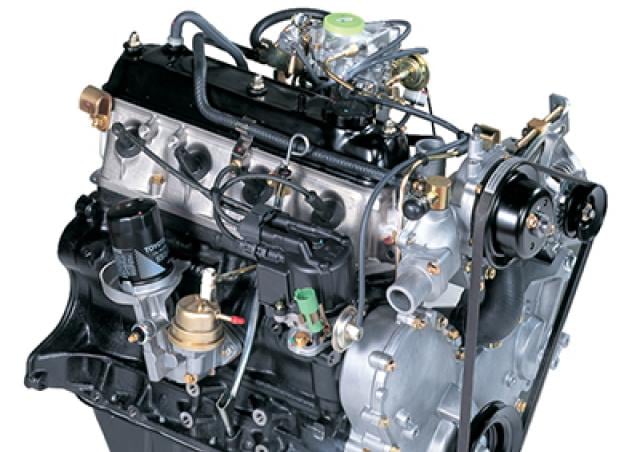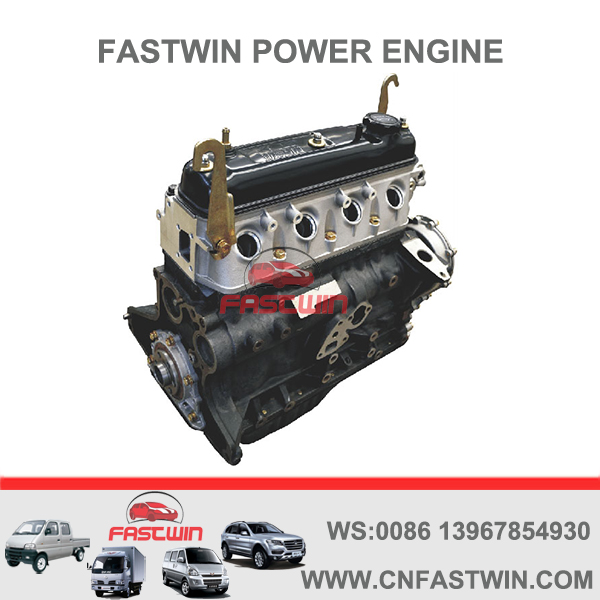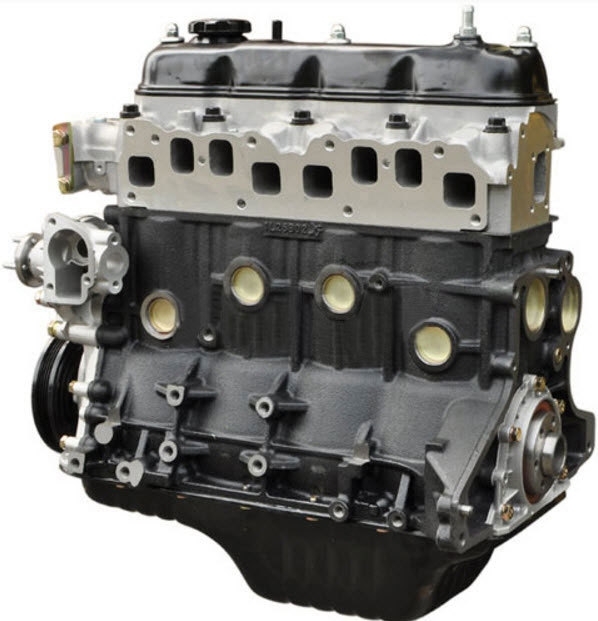Top Modifications to Enhance the Performance of Your 4Y Engine
Discovering the Various Kinds Of Engine: Which One Fits Your Demands?
Inner burning engines continue to dominate due to their dependability, while electrical engines are gaining grip for their sustainability. Crossbreed engines provide a flexible compromise, and diesel engines stand out for their power in requiring applications.

Interior Combustion Engines
Internal burning engines (ICEs) are the foundation of contemporary transport, powering a huge selection of cars from cars and trucks to aircrafts. These engines run on the principle of transforming fuel right into power via a series of regulated surges within a burning chamber. One of the most common sorts of ICEs include gasoline engines, diesel engines, and rotating engines, each created to meet certain efficiency and efficiency requirements.
Gas engines usually use stimulate ignition, while diesel engines count on compression ignition, causing distinctive distinctions in fuel effectiveness and power outcome (4y engine). Rotary engines, or Wankel engines, provide a portable style and smooth procedure, however are less frequently utilized in mainstream applications
ICEs have actually undertaken substantial improvements in modern technology, including the introduction of turbocharging and gas injection systems, which enhance overall effectiveness and performance. Despite their effectiveness renovations, ICEs encounter raising scrutiny as a result of their environmental impact, especially concerning greenhouse gas emissions. As the auto industry develops, the future of ICEs stays a subject of dispute, balancing performance, efficiency, and environmental factors to consider. However, they remain to play an important duty in global transportation infrastructure.
Electric Engines
As worries about environmental sustainability and nonrenewable fuel source reliance expand, electrical engines have actually become a compelling alternative to internal burning engines. These engines use electrical motors powered by batteries or fuel cells, providing a cleaner and extra effective methods of propulsion.
One of the key advantages of electrical engines is their reduced discharges. Unlike traditional engines that burn nonrenewable fuel sources, electrical engines generate zero tailpipe discharges, substantially decreasing air pollution and adding to enhanced public health. In addition, the effectiveness of electrical motors commonly goes beyond that of interior burning engines, converting a higher percentage of power from the power resource right into useful energy for motion.
Electric engines are additionally remarkable for their peaceful operation, making them excellent for urban atmospheres. 4y engine. The simplicity of their layout causes less relocating parts, which can lead to lowered maintenance prices and enhanced reliability in time
However, obstacles continue to be, consisting of battery manufacturing impacts, billing framework, and range restrictions. Regardless of these difficulties, the expanding financial investment in electrical lorry innovation and renewable energy resources factors toward a promising future for electrical engines, positioned to play an essential function in the shift towards sustainable transportation.
Hybrid Engines
Mixing the advantages of both typical and electrical inner combustion engines, hybrid engines represent a flexible service in the mission for reliable and lasting transportation. These engines combine a fuel or diesel motor with an electrical motor, permitting enhanced fuel effectiveness and reduced exhausts contrasted to traditional vehicles.
Hybrid engines run in several modes, making use of the electric motor for low-speed driving and the internal combustion engine for higher rates or when more power is needed. This vibrant procedure not only enhances gas economy yet additionally contributes to a smoother driving experience. Regenerative stopping is an additional essential attribute, capturing power generally lost during braking and redirecting it to reenergize the battery.

As consumers progressively focus on eco-friendliness, crossbreed engines stand out as a practical option, providing an effective balance of performance, efficiency, and environmental obligation. This versatility makes them appropriate for city travelling and long-distance traveling alike.
Diesel Engines
Performance and power are characteristics of diesel engines, which have actually long been preferred for their effectiveness and gas economic climate. These engines run on the principle of compression ignition, where air is pressed to a heat prior to fuel resource is infused, igniting it without the requirement for ignition system. This process allows diesel engines to achieve higher thermal effectiveness compared to gas engines, translating into better gas gas mileage and lower carbon dioxide exhausts.
Diesel motor are specifically appropriate for durable applications such as trucks, buses, and industrial machinery, where torque and resilience are critical. Their layout usually includes stronger elements to endure the greater pressures produced during procedure, leading to longer life span and minimized maintenance expenses.

Alternative Fuel Engines
While diesel motor have long dominated the landscape of durable power resources, different learn the facts here now fuel engines are getting grip as viable options for an extra lasting future. These engines utilize a selection of gas, such as compressed gas (CNG), ethanol, hydrogen, and propane, intending to reduce greenhouse gas exhausts and reliance on fossil gas.
One substantial benefit of different gas engines is their prospective to reduced carbon impacts. CNG engines produce less pollutants contrasted to traditional diesel engines, making them ideal for city transit systems and fleets seeking to improve air top quality. Ethanol, originated from biomass, not just minimizes discharges however additionally sustains agricultural economic climates.
Hydrogen fuel cells represent a cutting-edge growth in this world, offering zero-emission power with a chain reaction in between hydrogen and oxygen. Difficulties such as infrastructure growth and production expenses stay obstacles to widespread fostering.
Final Thought
Internal burning engines offer dependability, while electric engines focus on sustainability and reduced maintenance. Hybrid engines combine the advantages of both, improving performance, whereas diesel engines provide remarkable power and torque for heavy-duty applications.
Hybrid engines offer a versatile concession, and diesel engines stand out for their power in demanding applications. The most typical types of ICEs consist of gas find out this here engines, diesel engines, and rotary engines, each made to fulfill certain performance and efficiency demands.
Unlike conventional engines that shed fossil fuels, electrical engines create no tailpipe emissions, substantially lowering air pollution and adding to boosted public wellness.Crossbreed engines operate in numerous modes, utilizing the electrical motor for low-speed driving and the inner combustion engine for higher rates or when more power is needed. Crossbreed engines integrate the advantages of both, boosting effectiveness, whereas diesel engines supply premium power and torque for durable applications.